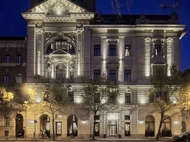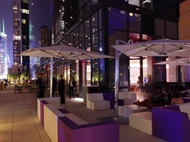Rio de Janeiro holidays are a chance to experience a vibrant culture, iconic landmarks and stunning natural beauty. Standing tall above the city, Brazil's Christ the Redeemer statue is a must-see, while the reward for taking a cable car up Sugarloaf Mountain Rio is a breathtaking panoramic view. Immerse yourself in the energy of Rio Carnival, relax on world-famous sandy stretches like Copacabana Beach, or explore the Tijuca National Forest. Holidays to Rio de Janeiro have something for everyone.
History and Culture
Rio de Janeiro's story unfolds like a samba - vibrant and rhythmic. Indigenous tribes such as the Tupi and the Tamoyo ruled these shores long before Europeans arrived. In 1502, Portuguese explorers mistook Guanabara Bay for a river, christening it ‘Rio de Janeiro’ (January River). Today, the city pulsates with life, a dazzling fusion of breathtaking beaches, passionate celebrations and a spirit of carioca joy that invites you to join the dance.
Things To Do
Towering over the city, Christ the Redeemer is a global icon and Rio's most recognisable landmark. You can take the red narrow-gauge train up, or you can hike through Tijuca National Park to reach this marvel. If you choose the energetic option, you'll get to experience lush trails teeming with exotic flora and fauna, and maybe even spot monkeys swinging between the branches.
For a taste of Rio's vibrant culture, walk up the colourful Lapa Steps, officially known as Escadaria Selarón. This mosaic masterpiece, painstakingly created by Chilean artist Jorge Selarón, winds its way through the Santa Teresa neighbourhood. Each vibrant tile tells a unique story, making this a must-see for photographers and art enthusiasts alike.
For a tranquil retreat amidst the urban hustle and bustle, escape to the Botanical Garden, where lush gardens and tranquil ponds provide a serene sanctuary to unwind. Wander through rows of towering palm trees and exotic blooms, or marvel at the intricate architecture of the glasshouse conservatory.
Food and Drink
No trip to Rio is complete without tantalising your taste buds in the city's vibrant culinary scene. Savour sizzling cuts of meat at a traditional churrascaria, where gauchos carve succulent steaks tableside. Dive into a hearty feijoada, a rich black bean stew bursting with flavour. And don't miss the crispy pastel, a flaky pastry filled with savoury goodness, or a refreshing acai bowl, a local superfood sensation.
Looking for a refreshing beverage to accompany your food? Beer is the most consumed alcoholic beverage in Brazil. However, you shouldn’t pass on the chance to sample cachaça (made from fermented sugarcane). If you’re a cocktail lover try the caipirinha - a fusion of cachaça, lime and sugar.
Shopping
From high-end malls like VillageMall brimming with designer brands to bustling street markets overflowing with local crafts and souvenirs, Rio caters to every shopper's fancy. Be sure to explore the Feira Hippie de Ipanema, a haven for handcrafted jewellery, clothing and art. Or hunt for unique treasures at the Saara Market - a historic gem found downtown.

















